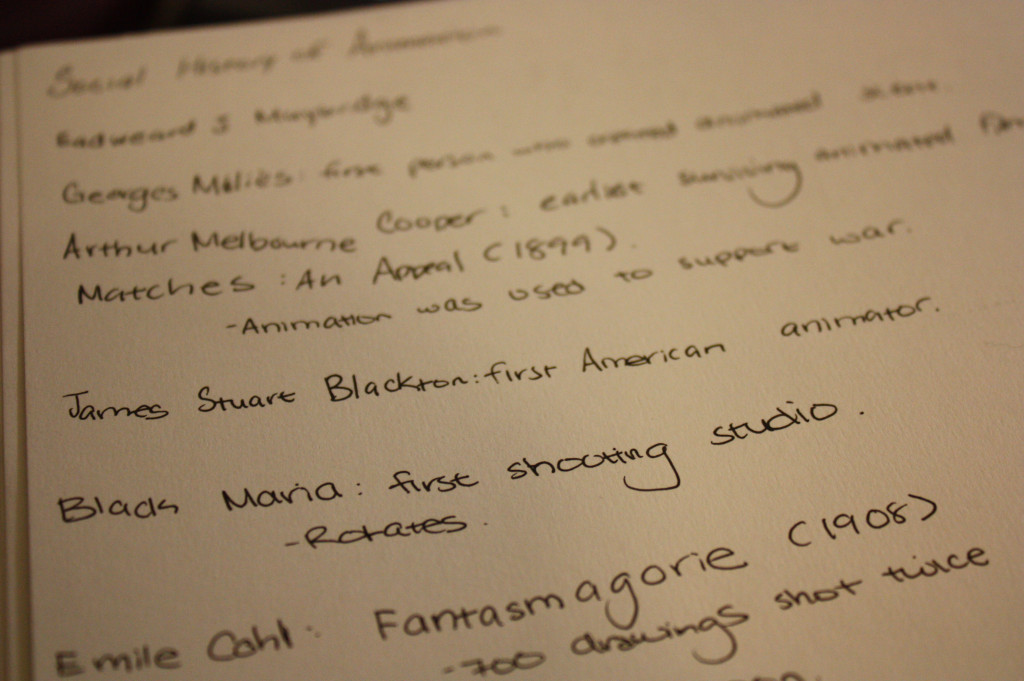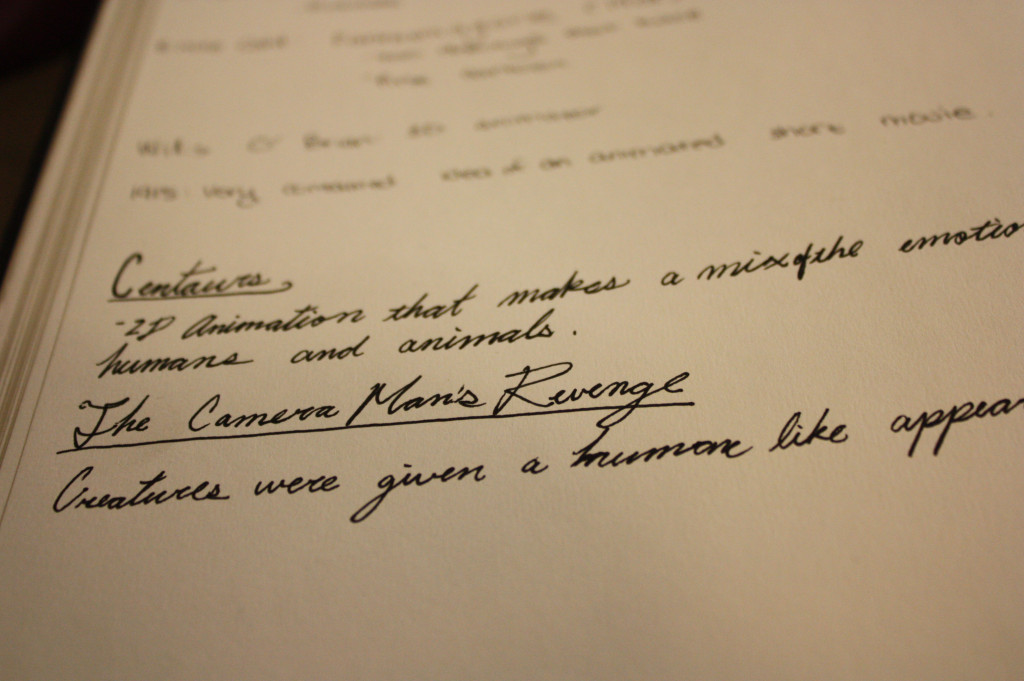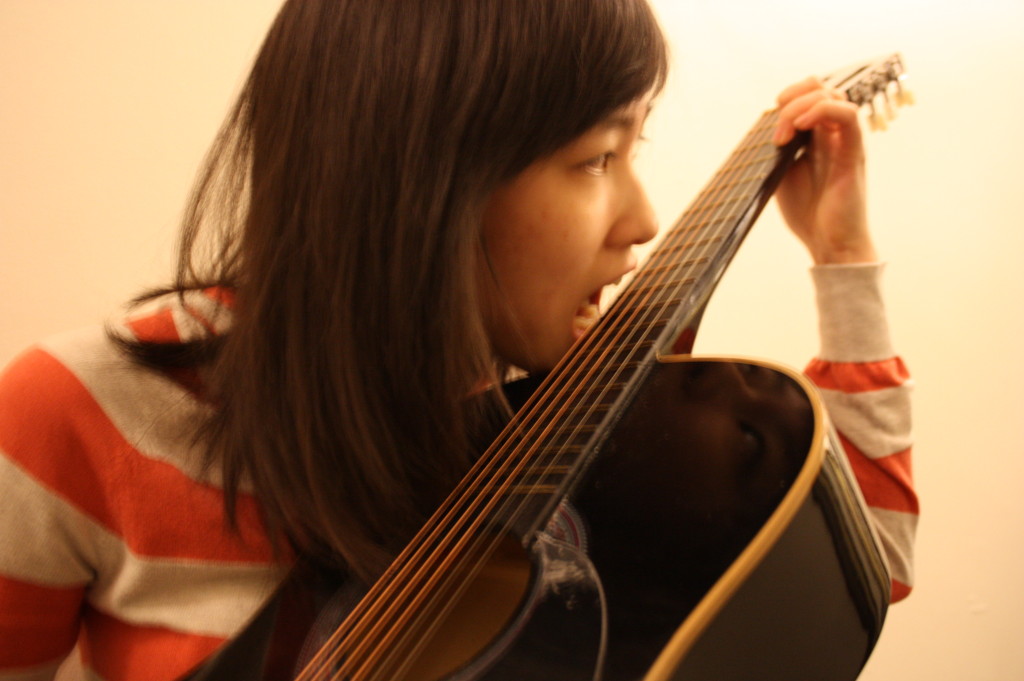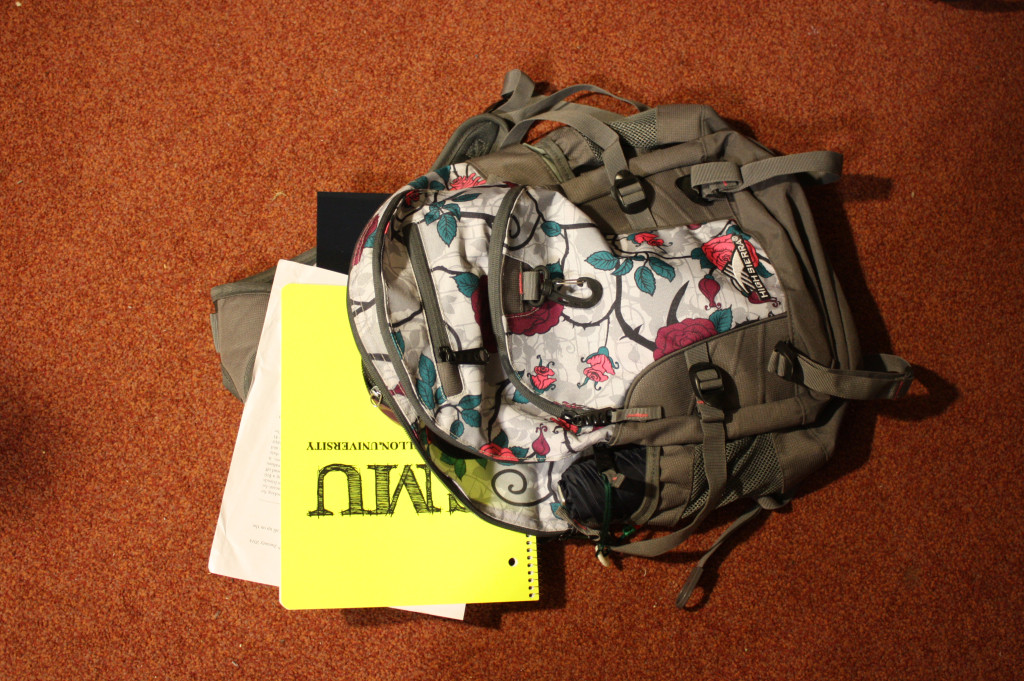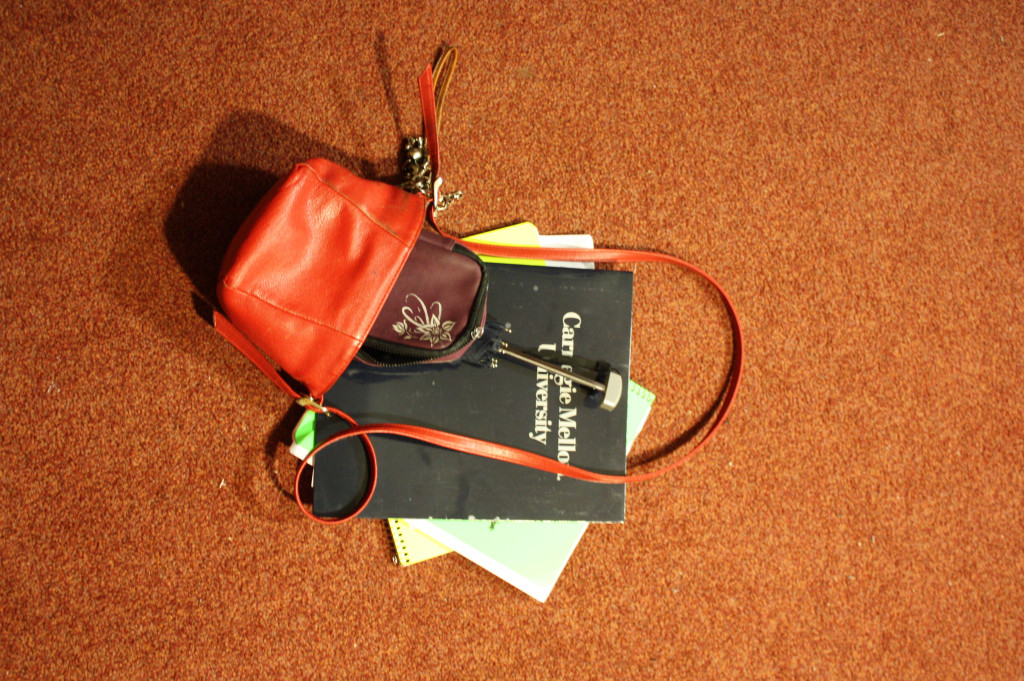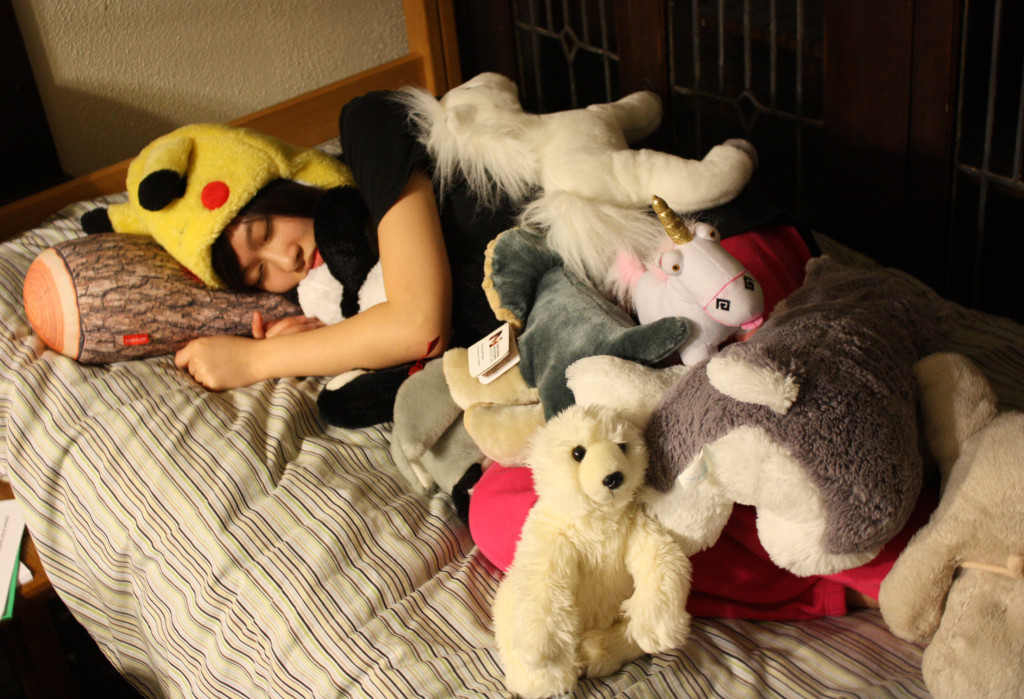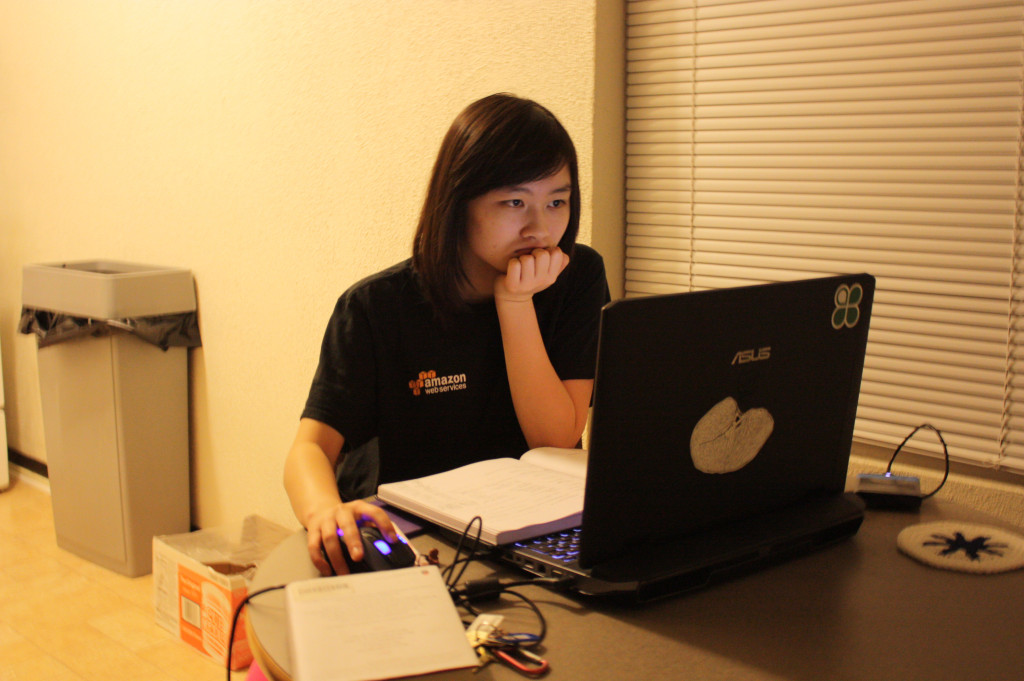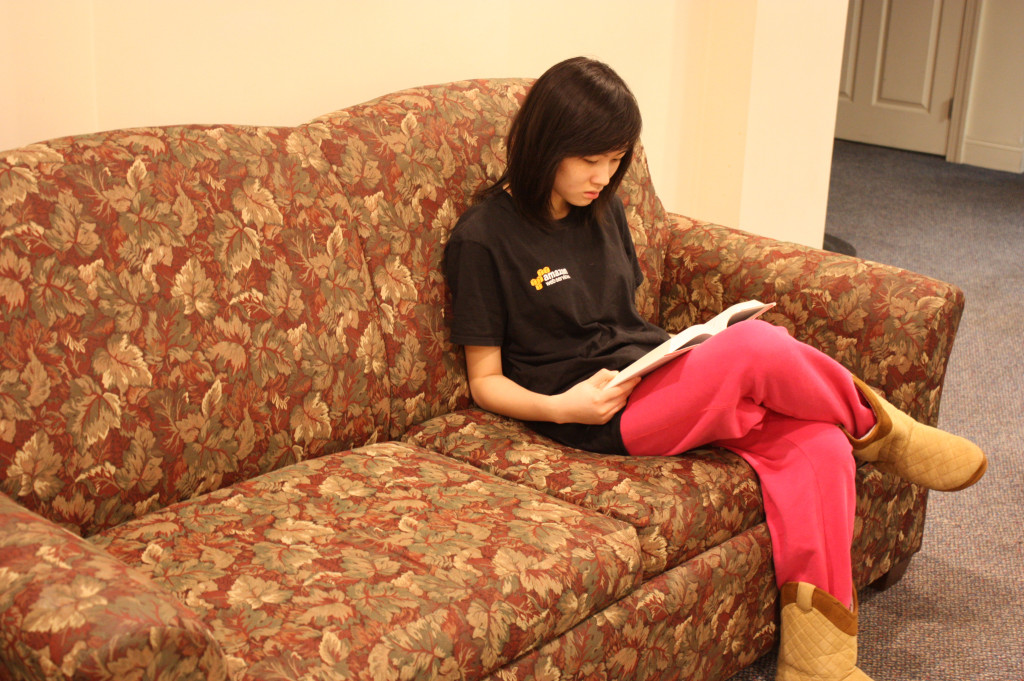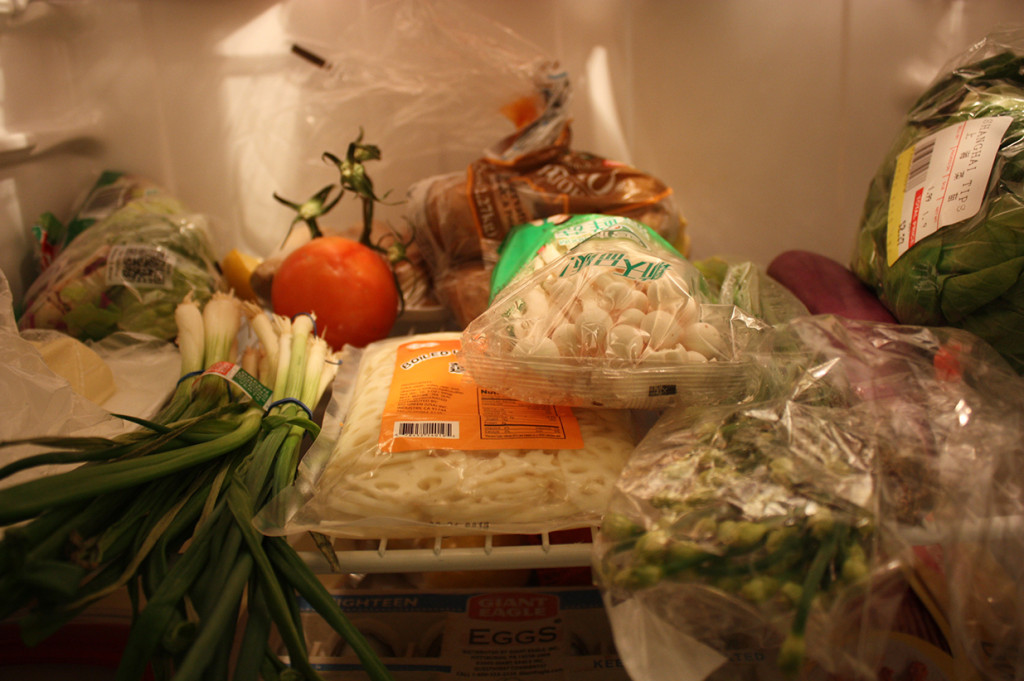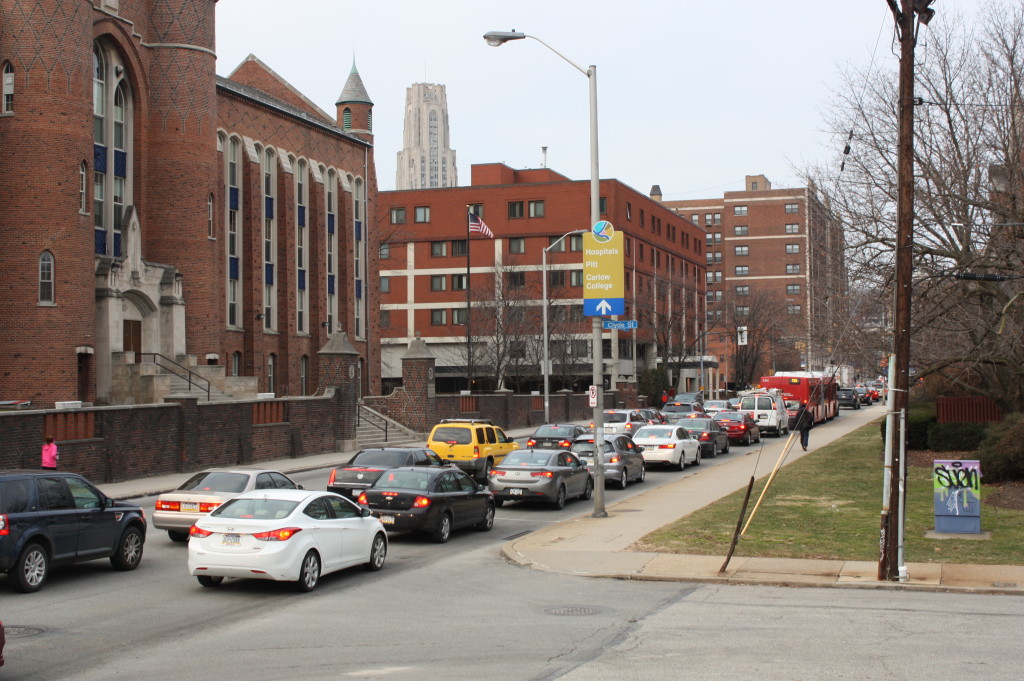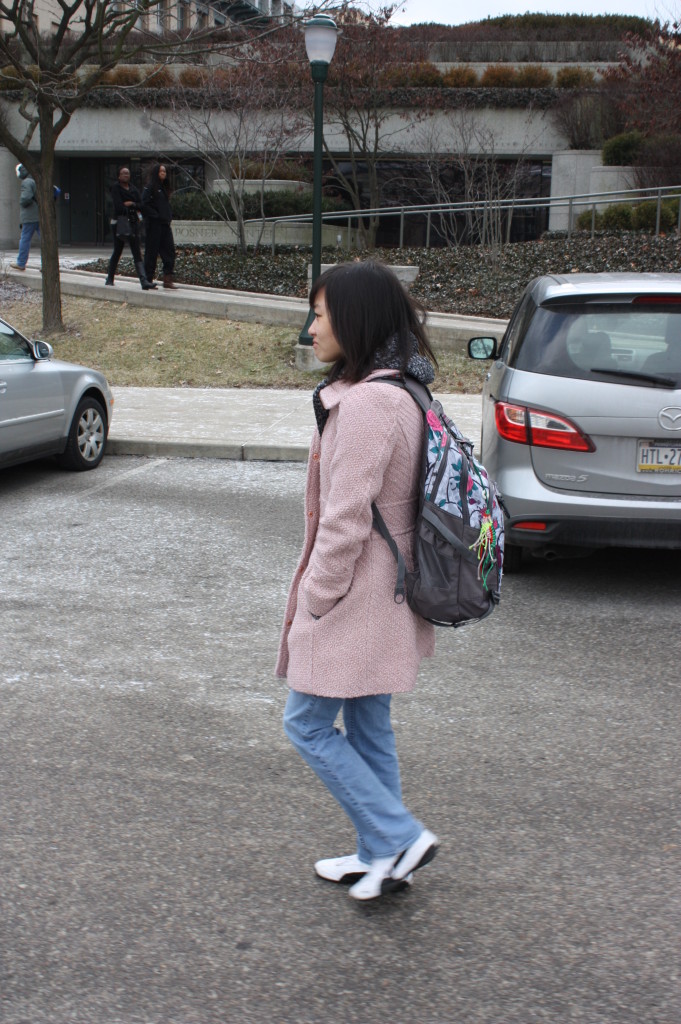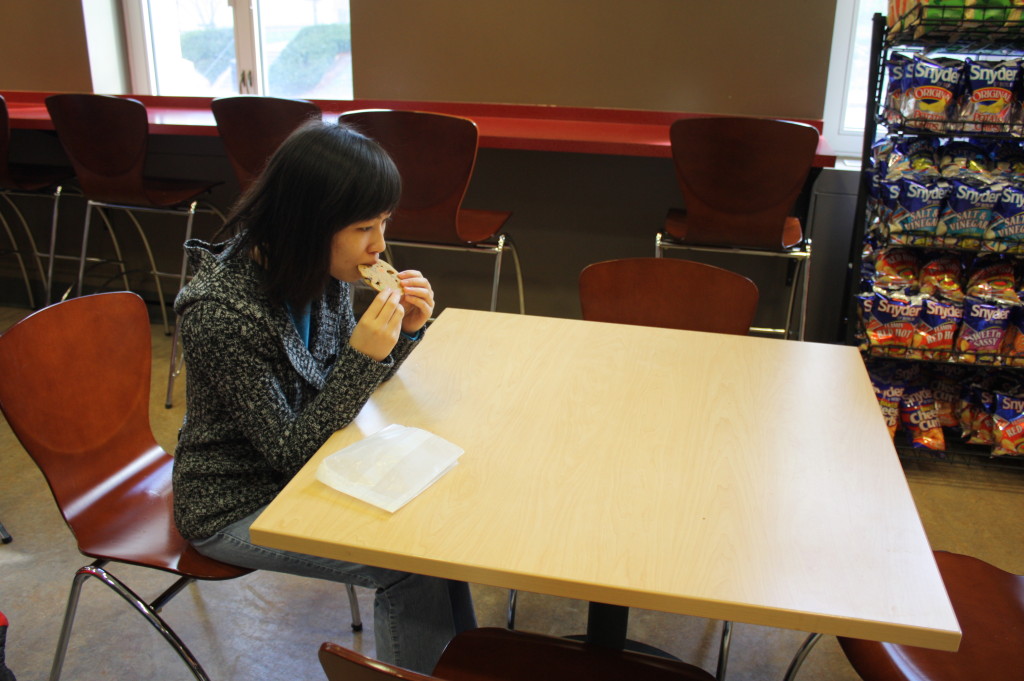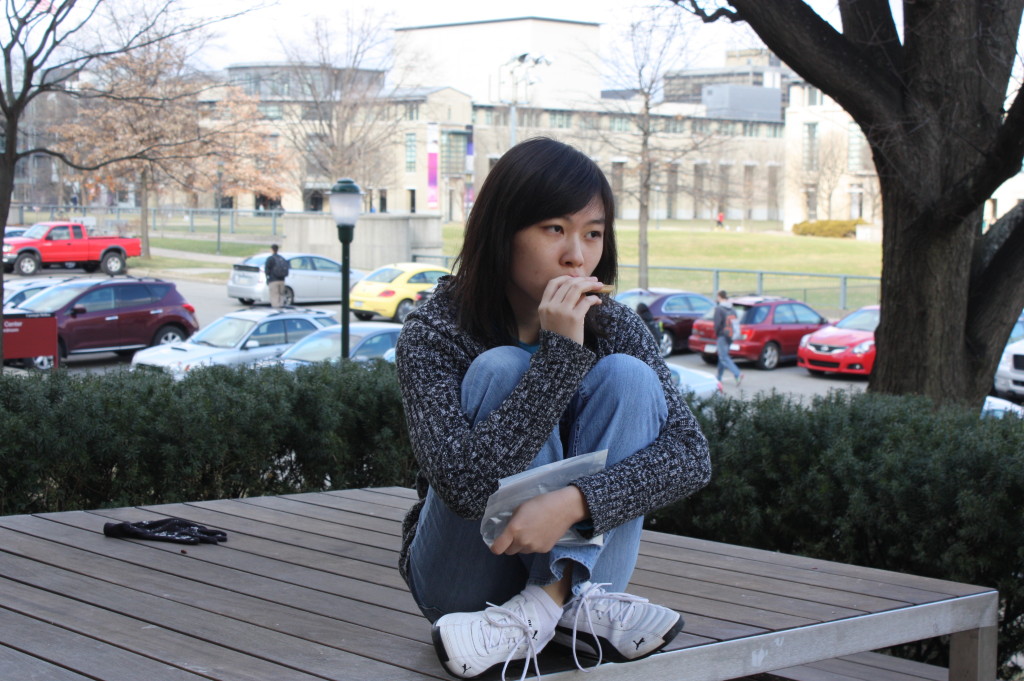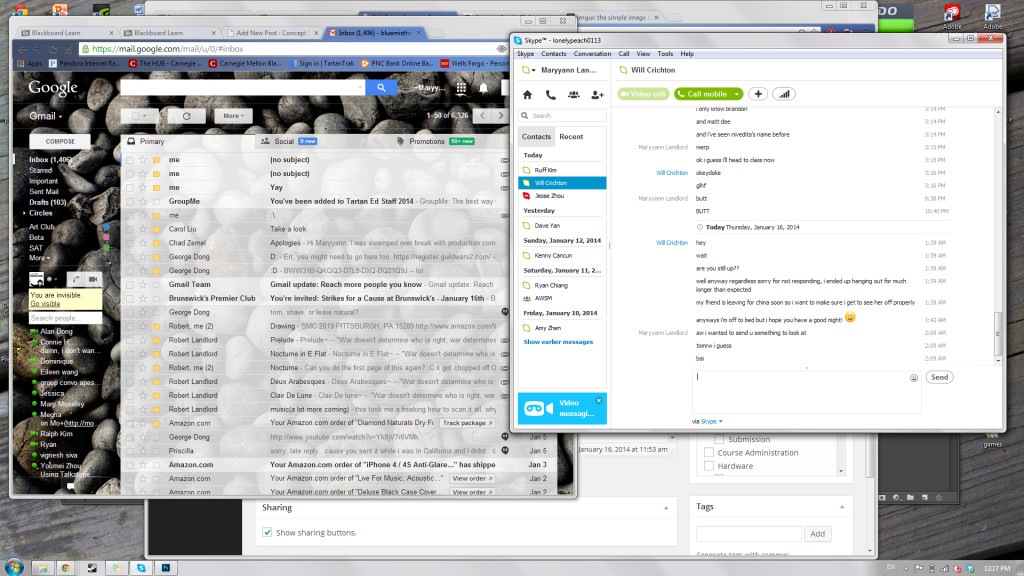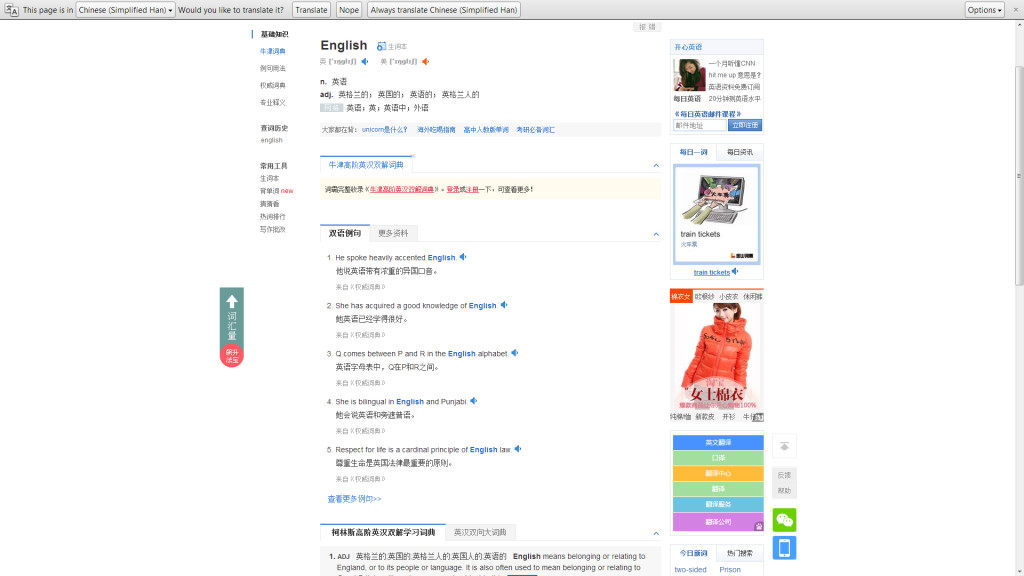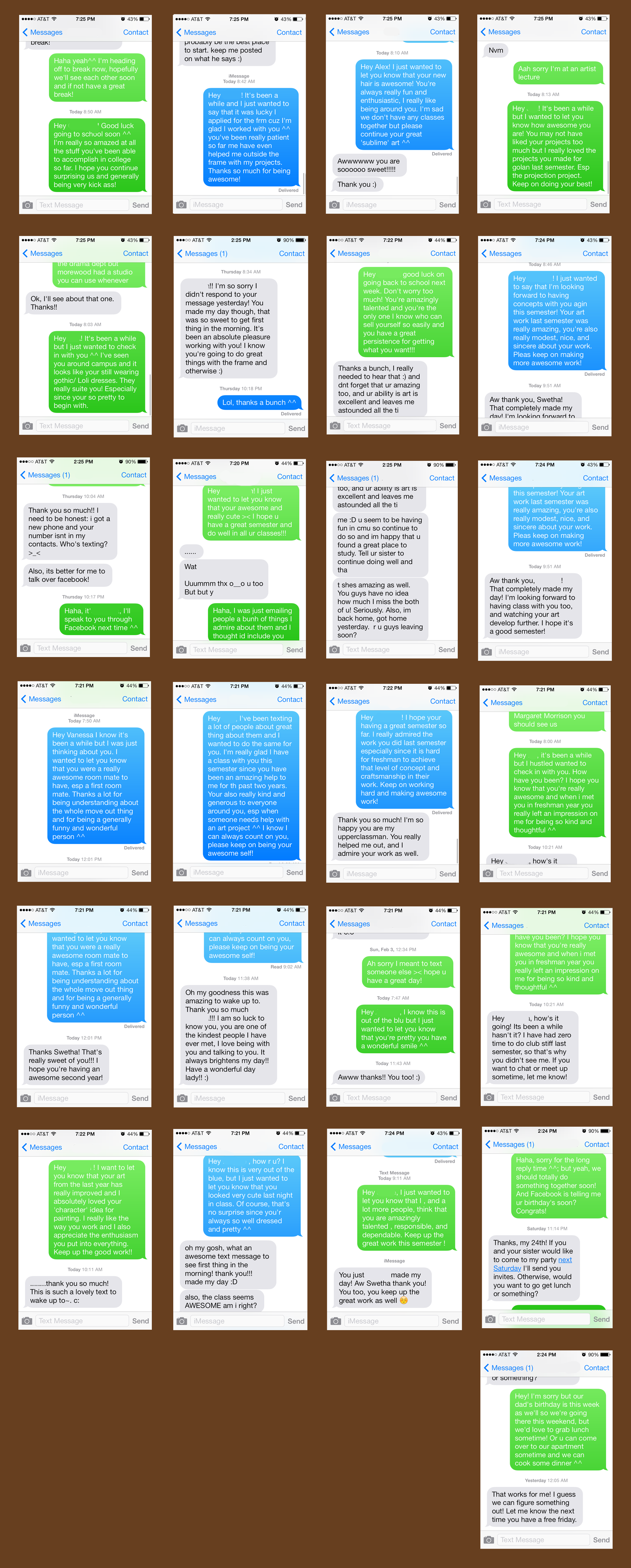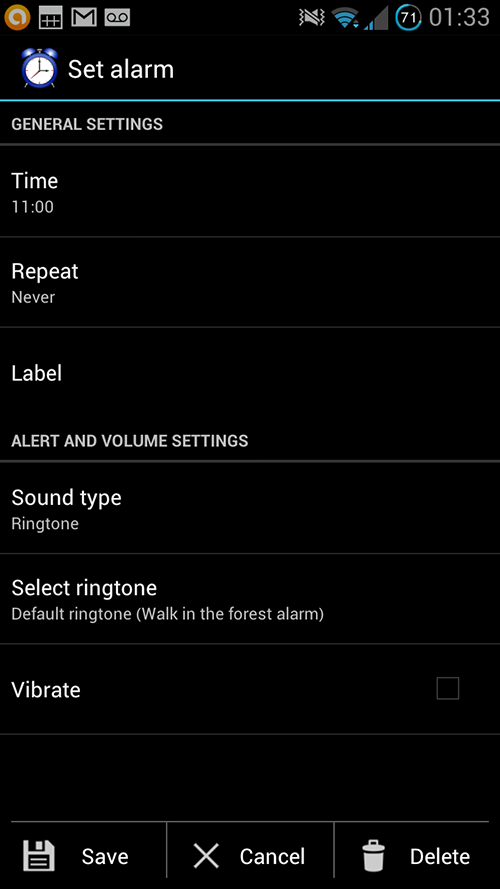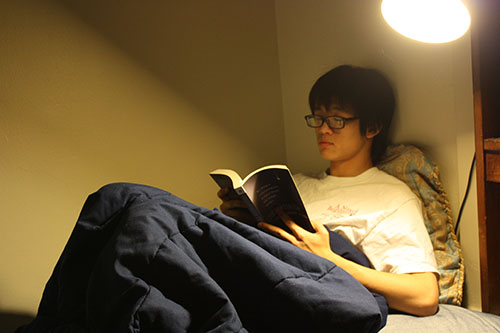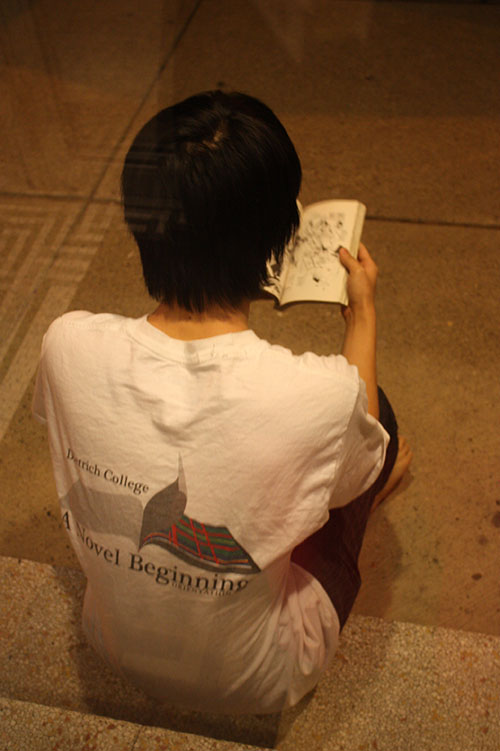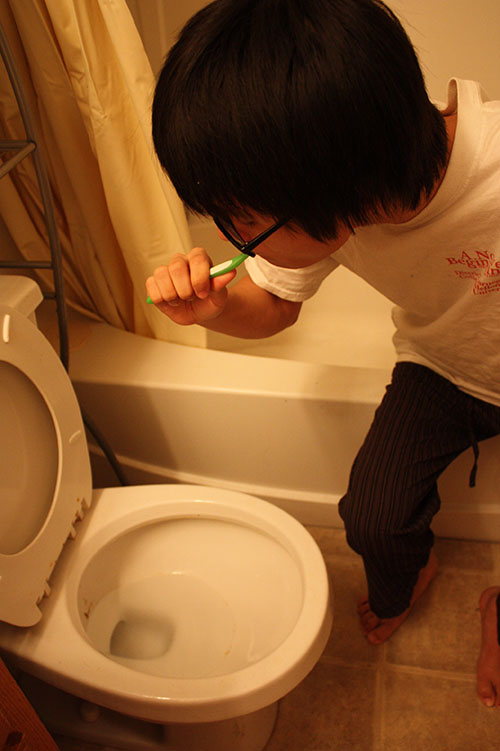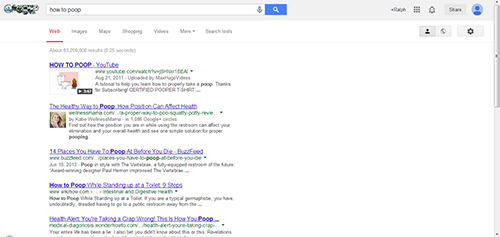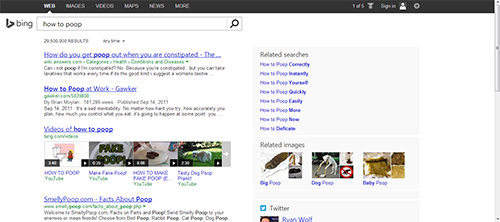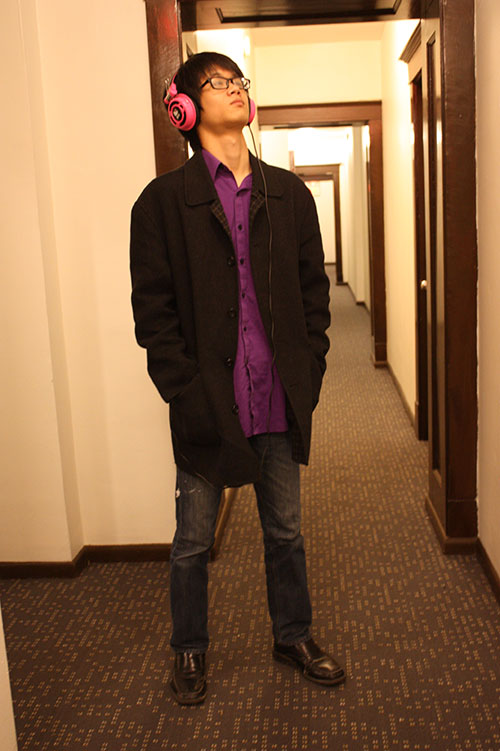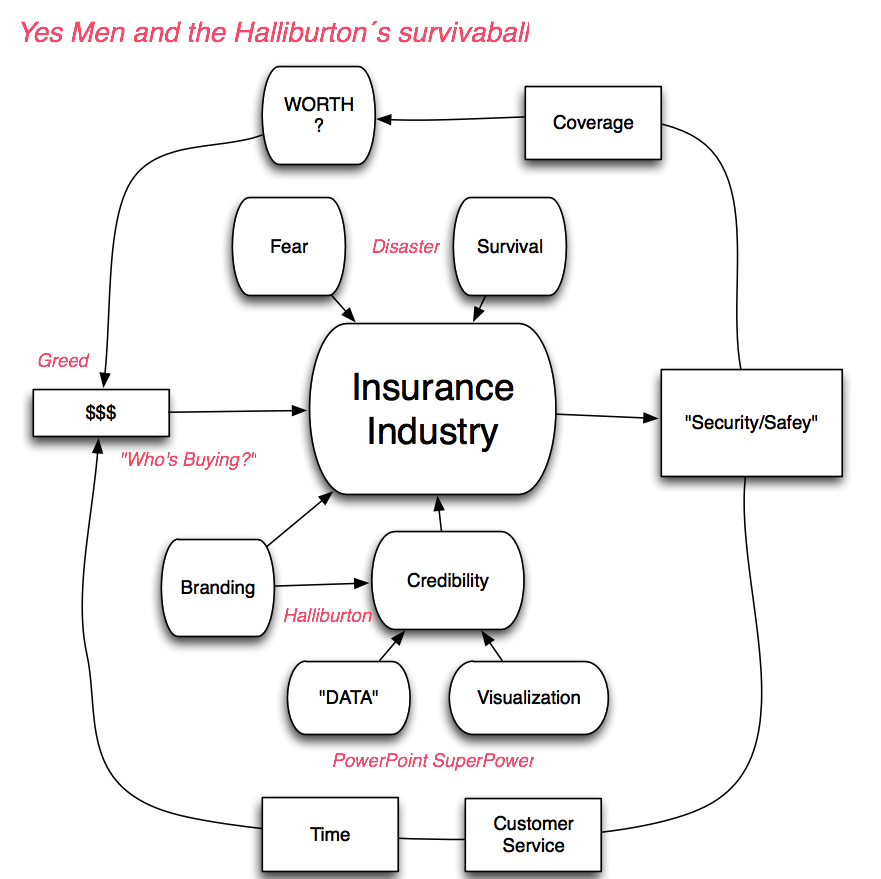List of Systems – Swetha Kannan ( 2014 )
Here is a list of systems in my life. Underneath each system I have also added ways in which I can mess up the system by changing something about the feedback:
- Cooking:
Input: Hunger
Output: Satisfaction
Feedback: Talent/skill
Other Factors: Diet, time, peopleCook dishes have never cooked before for a day
Only cook what I can make within 5 minutes.
Assemble all pics of food I have eaten over the past few years (I always take pics of new things I eat/ cook) - Communication:
Input: Necessity
Output: Knowledge gained or given
Feedback: Urgency
Other Factors: intelligence, language, personal vs. professionalRespond to all email, text, etc, that I receive within a day
Speak with a thick Indian accent for a day - Religion
Input: Belief
Output: Tradition
Feedback: Passion
Other Factors: Family, culture, time, dedicationTry reading a religious text that is not from my religion
Attend another religions’ meeting - Language
Input: Idea
Output: Communicate
Feedback: Audience
Other Factors: Culture, Family, Friends, Location, SpeciesSpeak Tamil to everyone for one day - Transportation
Input: Leave
Output: Arrive
Feedback: Distance
Other Factors: Weather, Time, CompanyVisit a PAT public meeting
Walk to all destinations regardless of distance
Wait for 1 specific bus the whole day - Hygiene
Input: routine
Output: Clean
Feedback: Tolerance (of feeling dirty)
Other Factors: Family, Friends, Responsibilities, SocietyDedicate 2 hours for brushing my teethe
Bathe in ice cold water for a week - Study
Input: Confused
Output: Understand
Feedback: Skill
Other Factors: Interest, tiredness, timeAttend academic development
Attend study sessions for 1 day (even if I do not take the class) - Relationships
Input: Lonely
Output: Support System
Feedback: Maintenance (keeping in touch)
Other Factors: Who?, Family, Professional vs. Personal, memories, grudgesRespond to all email, texts, social media, that I receive in a day (even if it is spam)
Write letters to everyone that I have not kept in touch with - Reading
Input: Curiosity
Output: Knowledge
Feedback: Time/speed
Other Factors: Interest, personal vs assigned, genre, lengthOnly read Magazines for one day
Read texts that are not assigned and are not interesting for me - Sleeping
Input: exhausted
Output: refreshed
Feedback: Time
Other Factors: work, tiredness, Parents, schedule, rulesDo not sleep for a night
Sleep with hourly interruptions
Spend a day where you sleep for an hour, work an hour, sleep, work, sleep, etc - System That I changed for 1 day:
Self – improvement
Input: Need to Change
Output: Become a better person
Feedback(negative) : criticism
Feedback(Positive) : Praise
Other Factors: work, professionalism, self-esteem, confidence, societyIn this system, I found it interesting that the system has clear negative and positive feedbacks. However, People most often seek to improve themselves through criticism even though positive reinforcement (praise) is proven to work better. I believe that this system is closely tied in with societal norms or pressures; if someone seeks praise then they are labelled as narcissistic, over-confident, and more. It is also hard to receive praise since we are not trained on how to graciously accept it. To break this system, I spent a day trying to let everyone on my contacts list know what great things they’ve done for me or just how special they were. After getting past the initial discomfort of writing such wonderful things and sending them out to be judged, it was interesting to see the different reactions.
Here is a link to the post which Documents this experience: teach.alimomeni.net/2014spring1/?p=4024
